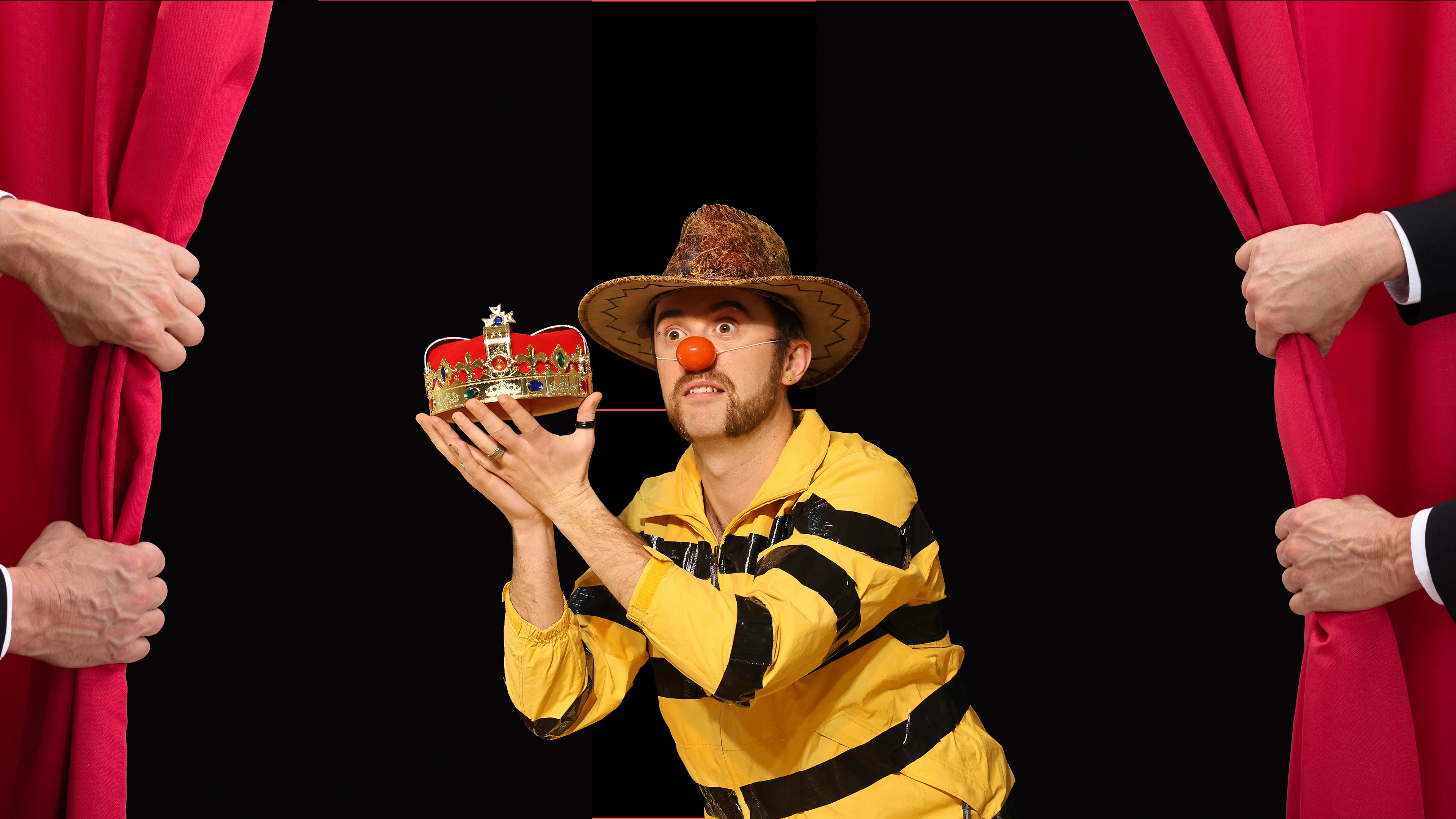
Taster Class In Clown Comedy
Theatre Deli, London
Learn More

by Viki Jackson
This month’s theme for our mindful class is listening. When I started improv comedy, I picked up so many skills on how to be a better listener, these were further developed during leadership training workshops. There are so many different ways to listen depending on your role in the conversation. For example, someone in a mentor role may ask open questions to promote the mentee to come to their own conclusions on things, whereas, if you are having a conversation with a friend you may bat topics back and forth.
The listening skills I learnt have impacted both my personal and professional relationships. The ability to listen actively, adapt, and collaborate (without ego) can improve communication, team dynamics and problem-solving abilities. Not to mention, make you feel good to be contributing positively to conversations and making you feel like a nicer human!
In improv, listening is key to a scene. You don’t want to be replying and complete missing what was really being said and spinning the conversation off into a different direction. The audience will spot it and that doesn’t make for a good scene. Listening is about good collaboration, the Yes And of improv where you are building on what your partner is offering you. Also, if you aren’t listening to a conversation, you aren’t really 100% taking part in it and that’s not fair to you partner. Funnily enough, all of this maps back to everyday conversations too.
So, listening is important. Great... how can I improve? Well have a go at these exercises below and come along to my next mindful workshop on 15th Feb!
Have a conversation with someone but before you can reply, you need to repeat the last sentence of what they have just said. For example:
Person A: I’ve like to get a coffee from the cafe. I’m just going to cross the road.
Person B: You’re just going to cross the road. Okay, I’ll come too. Would you mind if we got it to go? I’d like to get to the library before it shuts.
Person A: You’d like to get to the library before it shuts. Me too! Let’s get them to go.
Taking the time to repeat back the last thing the person says helps you process what’s being said. This might be a bit awkward outside of a workshop context but you could do the second step of this exercise instead, which is to repeat their last sentence in your head rather than out loud. This leads nicely onto to my next exercise:
Before responding to someone, take a moment to pause. As with the exercise above, this pause gives you the chance to fully process what they’ve just said. It also gives the person the opportunity to add to their point as well, proving that you weren’t just waiting for a gap to jump in and say your thing.
Next time you’re in conversation with a friend practice active listening. Active listening is not just listening to what's being said, it's picking up on body language and how you own body responds. It can involve maintaining eye contact, nodding to relevant points, avoiding interruption and giving feedback by paraphrasing what you’ve head or asking questions about specifics.
In improv we can practice active listening by how we use our body in our non-verbal reactions. For example if you are washing the dishes, you might start really scrubbing them to let off some anger if your partner is saying something difficult to you. This can add more comedy to a scene, especially if someone isn’t verbally saying how angry they are. Although, maybe keep that one to an improv scene rather than smashing up plates at home!
Mediation can also help with listening. The act of meditation brings you into the present moment and focusses on the here and now without getting distracted with other thoughts. This help us become better at listening as we’re able to focus more on what’s being said rather than wondering what to have for dinner. Meditation can be tricky to start but once you’ve given it a few sessions of practice it can improve. Saying that, some days will be harder than others but in meditation that’s okay too! If you want to try it out we’d recommend the Calm app (there’s a free trial) and their 10 minute daily calm sessions.

